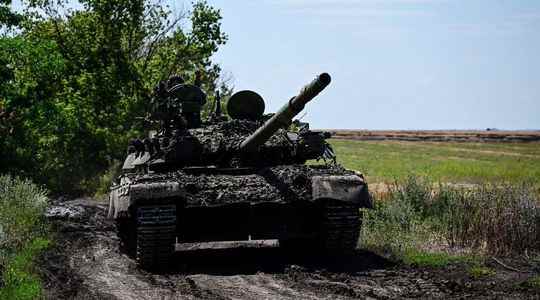More than six months after the outbreak of Russia’s war of aggression against Ukraine, can we imagine a diplomatic way out? A negotiation of this type is possible when, on the battlefield, the belligerents judge that they can no longer obtain significant gains or that they risk losing more. However, the front has become more rigid and neither party wins or loses enough to have an interest in freezing things in a diplomatic framework.
It was the military rout of the Ukrainian army in Donbass that forced kyiv in 2014 and then in 2015 to accept the Minsk agreements proposed by France and Germany. But it is also because it was perceived as the result of a capitulation and that Ukraine considered that these agreements were against it that it was reluctant throughout these eight years to implement them. within the framework of the Minsk process organized under the aegis of the OSCE [Organisation pour la sécurité et la coopération en Europe]. kyiv feared that a special status giving the Donbass a large degree of autonomy would have a destabilizing effect on Ukraine.
Ukrainians are against a peace negotiation
From the first days of the Russian intervention, Russian-Ukrainian talks were surprisingly opened on the Belarusian border and then in Turkey. They had gone quite far since Ukraine had submitted proposals at the end of March which notably provided for a status of neutrality accompanied by strict international guarantees, reserving the examination of the situation in the occupied territories of Donbass and Crimea for which a discussion for a period of fifteen years. Volodymyr Zelensky called on Vladimir Putin for direct negotiation. But that was precisely when Ukraine felt itself to be militarily inferior.
Today, despite the occupation of more than twenty percent of the territory by Russia, Ukraine hopes to regain lost ground thanks to long-range weapons supplied in large numbers by the West. It no longer even excludes taking back Crimea where its special services were able to carry out spectacular actions against Russian military targets. The state of mind of the population is unfavorable to a peace negotiation which would lead to an amputation of the territory. President Zelensky, although he had regained his popularity thanks to his courage and determination at the start of the conflict, would not be able to impose it. No Western country can exert pressure in this direction. This must be the choice of Ukrainians. Unless the United States decides one day to no longer deliver equipment. But continuing the fighting actually serves their interest in permanently weakening Russia, as the Pentagon chief has hinted.
Diplomatic negotiations are about niches
Nor does the Russian side have an immediate interest in negotiations. If Vladimir Putin seems to have abandoned his initial objective of decapitating the government of kyiv, he cannot engage in talks before having conquered the whole of the Donbass which would allow him to show that the objectives set for this “special military operation” – to namely the liberation of the Russian-speaking populations of this region – have been achieved. It is a question of loss of face or not internally, not of relations with the West with which the fracture is assumed. With the exception of the intelligentsia and urban youth, the vast majority of the population, very nationalist, is behind him. The losses are certainly heavy but contrary to what happened during the war in Afghanistan where the mothers of soldiers were mobilized, they receive large sums and, if necessary, insurance on the education of their children. children for the price of their silence.
Any Western appeal to Moscow for a ceasefire would in this context be pure wishful thinking.
In the meantime, diplomatic negotiations are focused on niches, very concrete cases such as the exchange of prisoners, the agreement on the export of cereals from Ukrainian ports at the request of the President of the African Union whose members are threatened by starvation or the agreement on a visit by IAEA experts [Agence internationale de l’énergie atomique] in Zaporizhia, the largest nuclear power plant in Europe. It should be noted that if the Security Council is out of the game because of the Russian veto, Antonio Guterres, the Secretary General of the United Nations, because of his neutrality, has involved himself in a discreet and effective manner on these subjects.
Great diplomatic negotiations are not about moral issues. They will have to wait for a balance of power to emerge on the battlefield.
